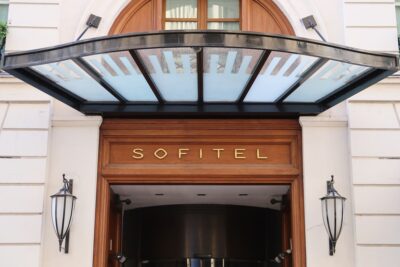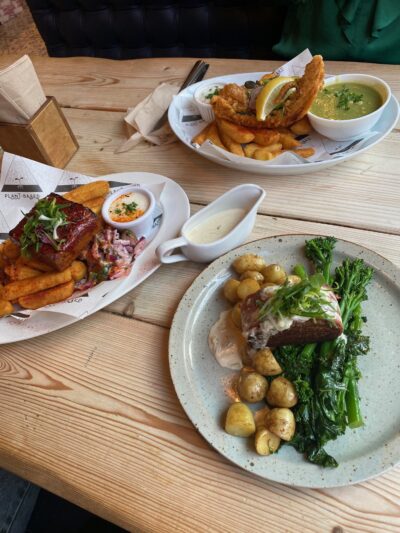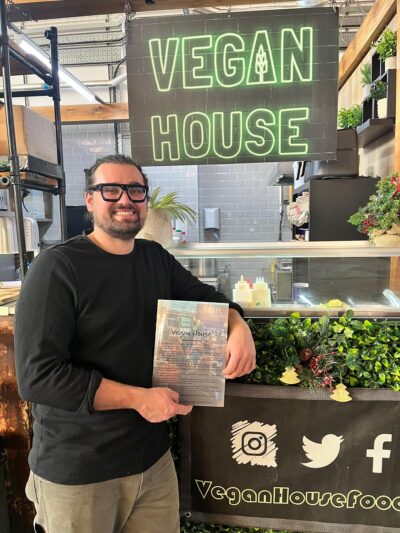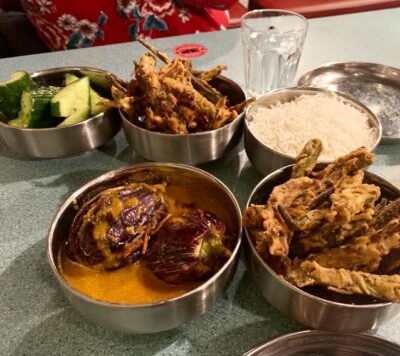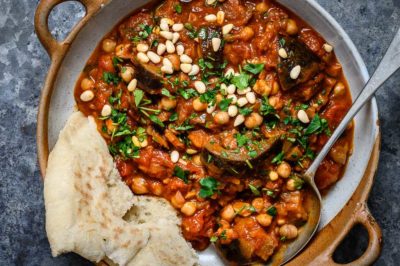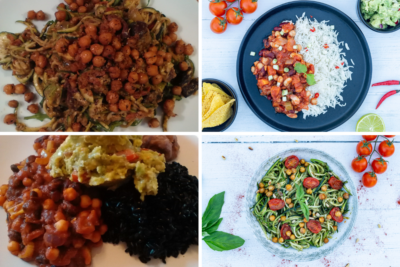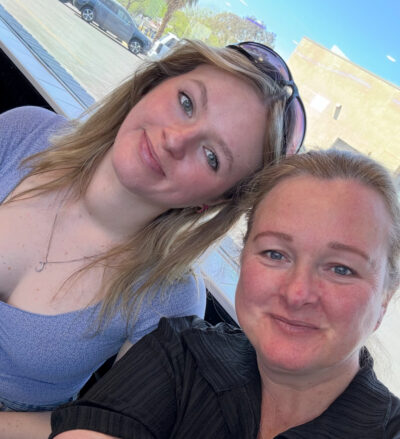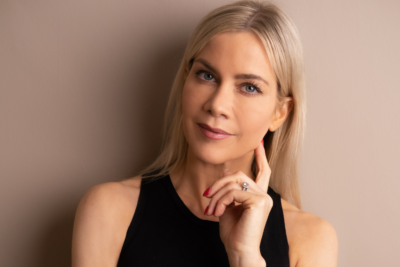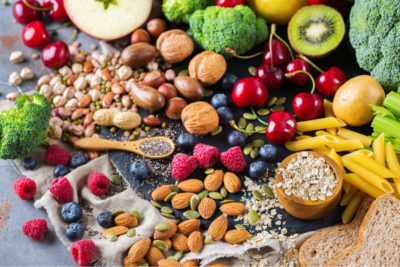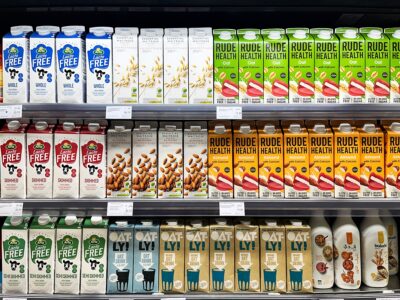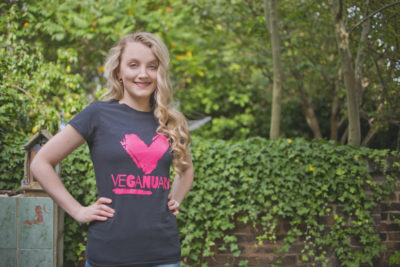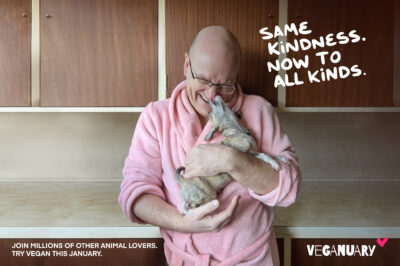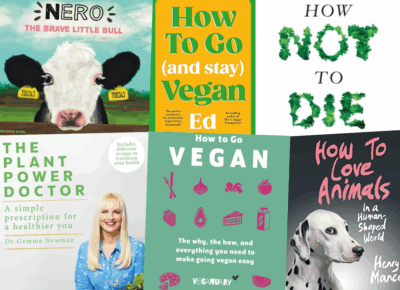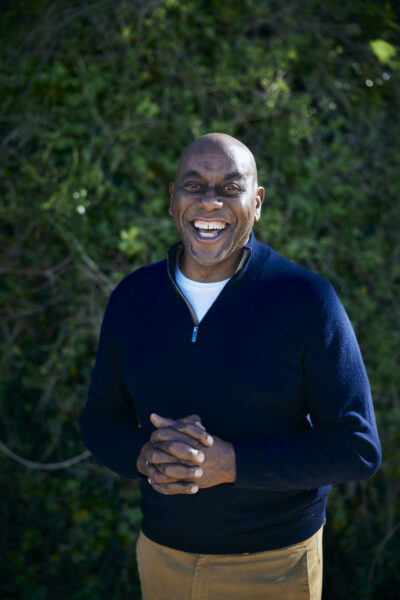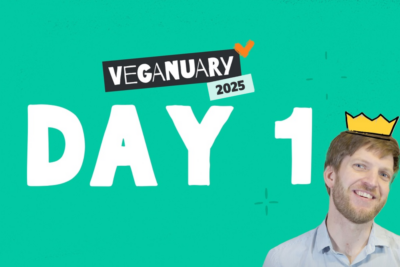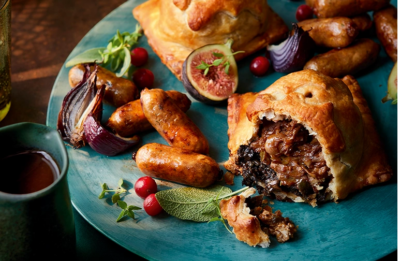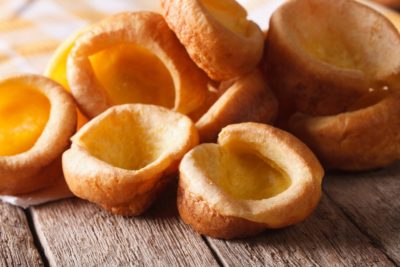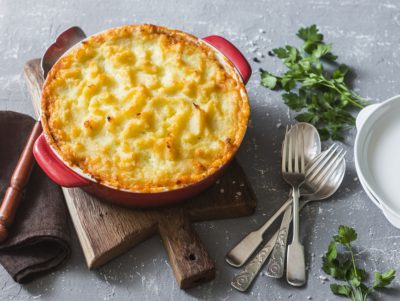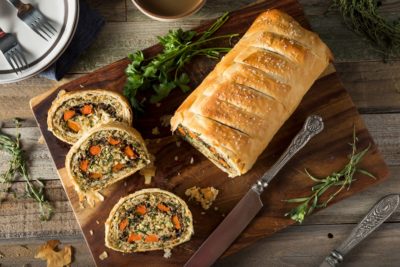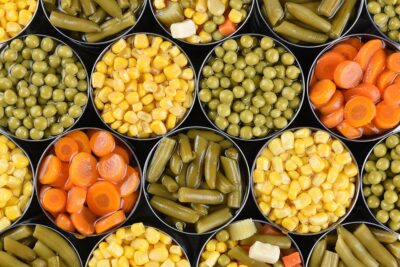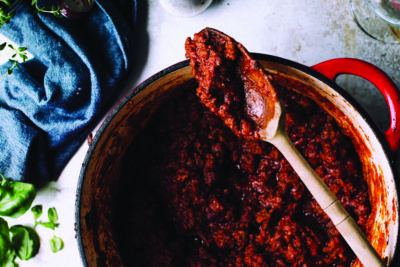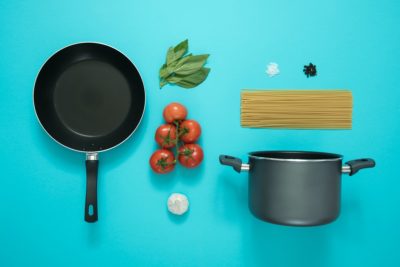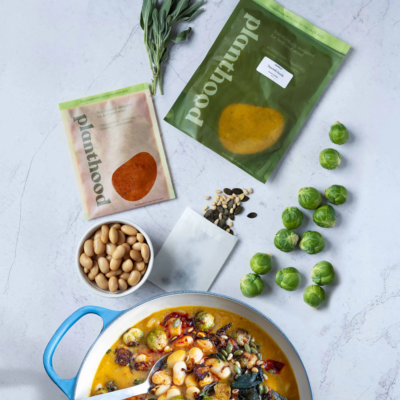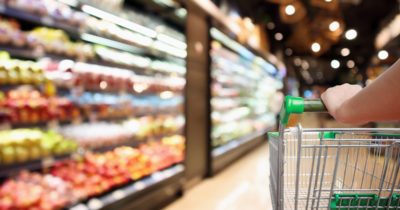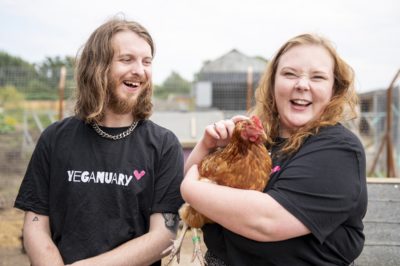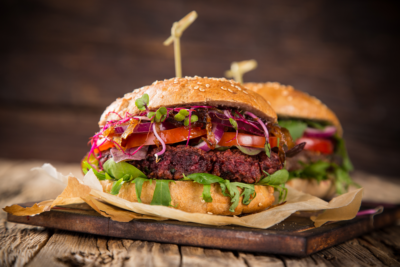Chicken has long been touted as an eco-friendly alternative to beef or pork, but in reality, modern chicken farming has a detrimental impact on the environment. In the UK, chicken farming has rapidly industrialised in recent decades to meet the growing demand for cheap meat, and we are now witnessing the severe consequences of this system.
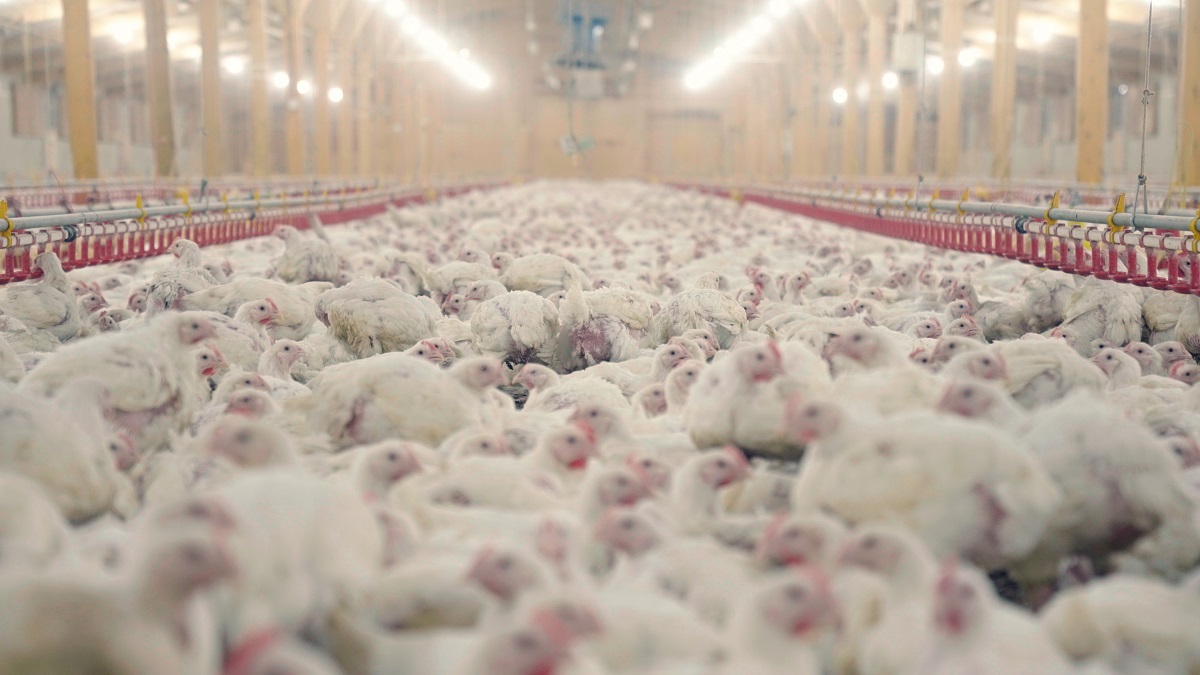
According to the Soil Association, many rivers in the UK are at risk of becoming ecological dead zones, partly due to pollution from agriculture.1 A recent report by the River Trust states that none of England’s rivers have a good ecological status and even refers to them as a ‘chemical cocktail.’2
Why are so many of the UK’s rivers heading towards ecological collapse and how do chicken and egg farming play a role in their demise?
How does chicken farming cause pollution?
Chickens are the most farmed land animal worldwide and over 1 billion chickens are slaughtered for meat every year in the UK alone.3 Large-scale facilities enable fast-growing breeds to be reared in the tens of thousands, an economically efficient system that means farms can meet the high demand for chicken at an affordable price for the consumer.
However, there is a much wider cost to farming animals in this way, a cost that is not reflected on the packaging. We’ve all heard of cow trumps causing methane emissions, but chicken poop also harms the environment.
Chicken manure contains phosphates, which are important for fertilising land, but they become dangerous contaminants when they cannot be absorbed by the land and enter rivers and streams at such high levels.
Excess phosphates lead to the growth of deadly algal blooms which block sunlight and starve rivers of oxygen, eventually harming other plant life and animal populations such as fish, eels, otters and birds.
Some intensive facilities house as many as 40,000 chickens in just one shed and have dozens of sheds on one farm, and the run-off from their waste finds its way into nearby rivers, streams and groundwater when it is not properly disposed of.
Flaws in planning, loopholes in regulations and lack of enforcement have allowed this pollution to go unchecked for too long.
Pollution of the River Wye
The ecological devastation caused by chicken and egg farms can be seen in the River Wye, which flows for over 150 miles along the border of England and Wales.
The Wye’s catchment area is nicknamed the ‘chicken capital’ of the UK because more than 20 million birds are being farmed at any given time at around 120 farms in the area.4
Algal blooms can be seen all over the river and key species such as the Atlantic salmon have declined as a result. Research from Lancaster University found that around 70% of the phosphate pollution in the Wye comes from agriculture5 and although chicken farming doesn’t account for all the pollution, phosphate levels are highest in areas closest to these farms.
In 2023, Natural England downgraded the River Wye’s status to ‘unfavourable-declining,’ prompting widespread outrage from local communities and campaigners.
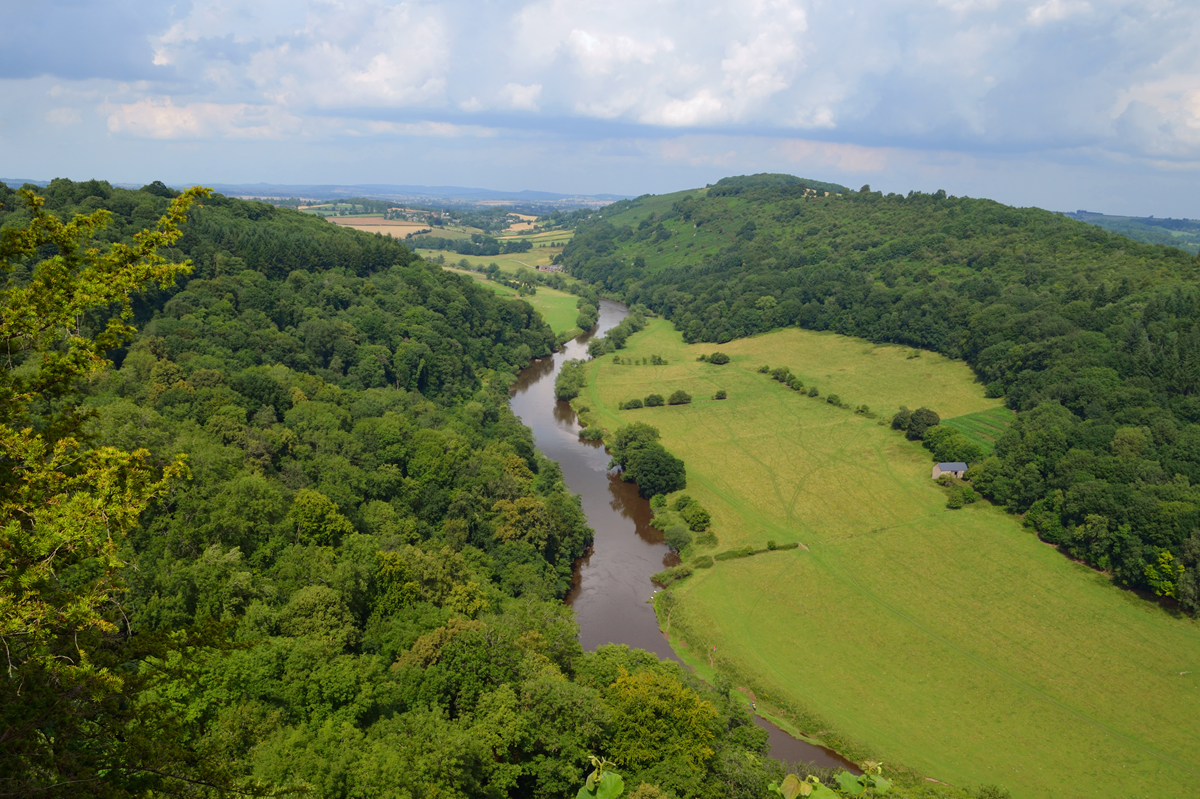
Avara Foods, one of the biggest suppliers of chicken in the UK, is responsible for most of the farms in the River Wye’s catchment area. It now faces legal action over growing pollution levels and how people in nearby communities have been affected by the poor water quality.6
Regulations state that the amount of manure applied to the land must not exceed how much it can absorb, which has been ignored for years without repercussions. Avara Foods has promised to reduce the number of farms in the Wye’s catchment area and cut manure from 160,000 tonnes a year to 142,000 tonnes.7
Is it better to eat free-range?
Choosing to eat free-range chicken and eggs isn’t necessarily better for the environment. Free-range egg farms have been directly involved in the destruction of the River Wye because hens farmed for their eggs are still farmed in huge numbers, and the hens defecate directly onto the fields, creating huge amounts of waste.
Research by the charity River Action found that contaminated water from many free-range egg farms in the Wye’s catchment area is running straight into the river system and no action has been taken to mitigate this. Farms can go unpunished for these clear breaches of regulation, and as a result, River Action has sought a judicial review against the Environment Agency.8
Following mounting pressure from campaigners, in April 2024 the government announced its action plan to protect the River Wye, which includes requiring large farms to export manure away from the river, as well as helping farms with on-farm manure combustion.9 However, campaigners believe this plan does not go far enough and that it will merely shift the problem to other rivers.10
So, what is the solution?
Our current intensive farming systems are focused on producing artificially cheap chicken and doing so at the cost of the environment. Even free-range methods are not as environmentally friendly as consumers are led to believe.
Short-term measures include better enforcement of the current regulations and banning new intensive units from opening, but the system of food production as a whole needs to be addressed.
A shift away from intensively farming fast-growing breeds is certainly needed, and some campaigners have called for a ‘less but better’ approach – farming slow-growing breeds in lower numbers to produce better quality meat.
However, we believe that there needs to be a societal shift away from eating chicken, eggs and other animal products altogether to reduce the demand for these foods. In order to combat the climate crisis, a move towards plant-based food systems should be prioritised, with increased support for farmers to transition to sustainable practices.
By leaving animals off our plates and opting for plant-based alternatives, we can all start playing our part in making these changes a reality.
For more information and support with moving away from eating chicken and eggs, check out our Choose Chicken-Free campaign.
References:
1. Soil Association. “Stop Killing Our Rivers.” Mar. 2024, https://soilassociation.org. Accessed 15 Apr. 2024.
2. The River Trust. “State of Our Rivers Report.” therivertrust.org, Feb. 2024, theriverstrust.org. Accessed 15 Apr. 2024.
3. Bedford, Emma. “Poultry Slaughterings in the UK 2003-2021.” Statista, 2 Mar. 2024, statista.com. Accessed 15 Apr. 2024.
4. Goodwin, Nicola. “River Wye Pollution Leads Chicken Firm Avara to Be Sued.” BBC News, 19 Mar. 2024, bbc.co.uk. Accessed 15 Apr. 2024.
5. Wye & Usk Foundation. “Taking the Initiative.” The Wye and Usk Foundation, 2 Nov. 2023, wyeuskfoundation.org. Accessed 15 Apr. 2024.
6. Leigh Day. “Multi-Million-Pound Legal Claim over River Wye Pollution Allegedly Caused by Chicken Producers | Leigh Day.” Leighday.co.uk, 19 Mar. 2024, leighday.co.uk. Accessed 15 Apr. 2024.
7. Goodwin, Nicola. “River Wye Pollution Leads Chicken Firm Avara to Be Sued.” BBC News, 19 Mar. 2024, bbc.co.uk. Accessed 15 Apr. 2024.
8. Ungoed-Thomas, Jon. “Environment Agency Accused of “Scandalous Neglect” over Chicken Excrement Entering River Wye.” The Observer, 13 Jan. 2024, theguardian.com. Accessed 15 Apr. 2024.
9. GOV UK. “New Multi-Million Pound Action Plan Launched to Protect the River Wye.” GOV.UK, 12 Apr. 2024, gov.uk. Accessed 15 Apr. 2024.
10. Soil Association. “Government’s River Wye Action Plan Likely to Shift Problem Elsewhere.” soilassociation.org, 16 Apr. 2024, soilassociation.org. Accessed 17 Apr. 2024.

